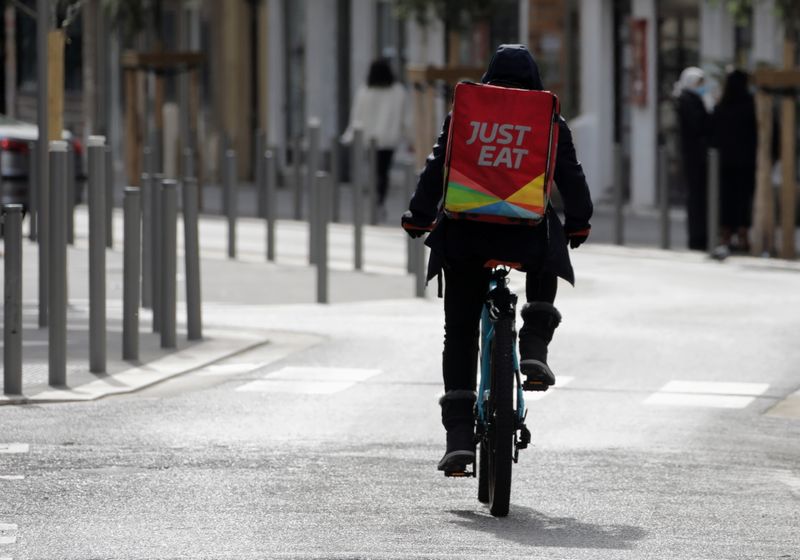AMSTERDAM (Reuters) – Shares in ride-sharing and food delivery companies rebounded on Tuesday, ahead of an European Commission proposal expected Dec. 9 that will define when couriers should be considered employees and when they should be considered independent contractors.
The Financial Times on Tuesday reported that the proposal, under development for years, will as expected put the burden of proof on companies, rather than workers, to show when their delivery people are self-employed.
A spokesperson for the European Commission declined to ment until its publication on Thursday.
Shares in the Netherlands’ Just Eat Takeaway.com rose 6.3% by 1030 GMT, Germany’s Delivery Hero rose 4.5, and Britain’s Deliveroo was up 1.9%, reversing similar declines on Monday, in an apparent relief rally to recover some on Monday’s losses. Uber shares closed at $38.49 in the United States.
Analysts for Citi said in a note that Deliveroo is most heavily exposed to the proposed rule change, while larger European rival Takeaway already uses an employment model. Delivery Hero and Uber have larger operations in non-European markets.
At present, gig economy workers in Europe have typically been considered self-employed, relieving companies of the obligation to pay them minimum wage or giving them sick leave or holiday pay.
However, court decisions in the Netherlands, Britain, Italy and Spain in the past two years have challenged that.
The FT, citing from the unpublished proposal, said it could mean the reclassification of 4.1 million contractors as employees, leading to 484 million euros ($545 million)in extra annual pay and entitling them to the same “rights and protections” as other employees under European law.
A study by Copenhagen Economics commissioned by an industry group for the platform companies published last month argued that the new European rules might lead to the loss of 75,000 jobs.
($1 = 0.8875 euros)
(Reporting by Toby Sterling and Louise Heavens)


























